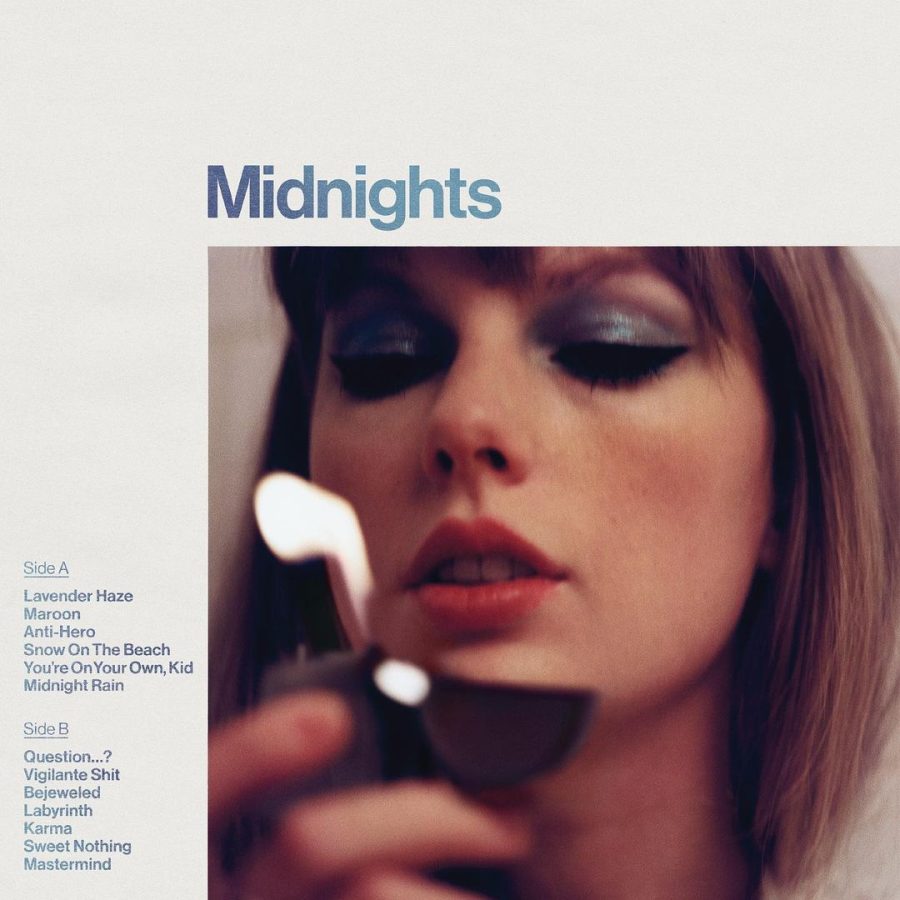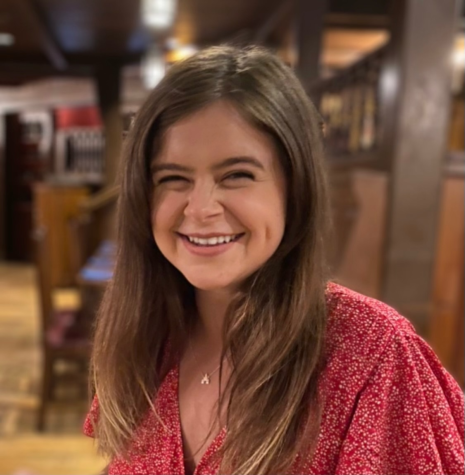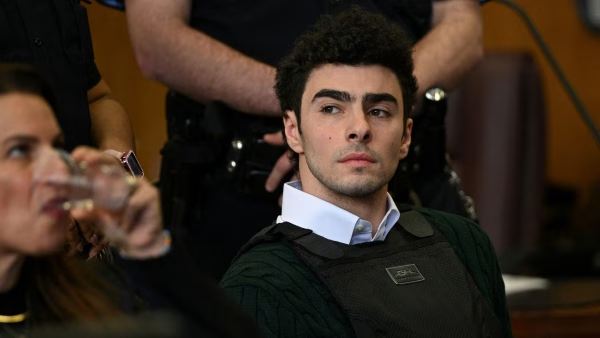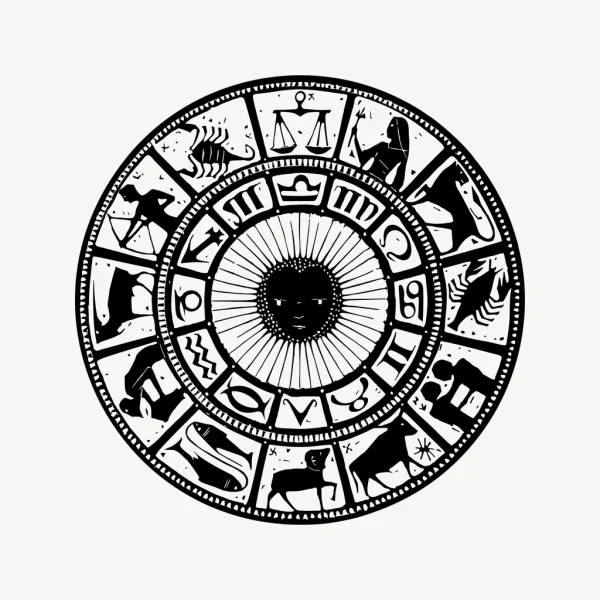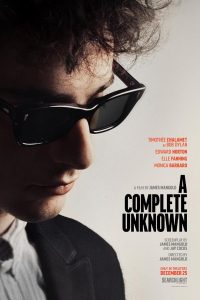Taylor Swift shows vulnerability in reflective album ‘Midnights’
November 1, 2022
Taylor Swift returns to pop amidst her re-releases with a synth lover’s heaven that heals open wounds from the past. With over one million records sold in the first week of its release, “Midnights” explores Swift’s “sleepless nights” and most vulnerable self through 13 tracks–and an additional seven on the “3am Edition.”
With a very different marketing approach compared to “folklore” and “reputation,” Swift and her team approached the “Midnights” release date with weeks of anticipation, releasing song titles and plenty of Easter eggs. Despite this, fans were still unaware of what was to come in regard to its content.
The album opens with “Lavender Haze,” an experimental pop track that we had previously yet to hear from Swift. A fantastic album opener, it sets up a dream-like tone that’s all-encompassing of the songs to come. “Maroon” follows with an unforgettable bridge and incredible imagery.
“Anti-Hero,” the lead single for the album, showcases Swift’s worrying thoughts for everyone to see. “Snow On The Beach,” Swift’s fourth track on the album features alternative icon Lana Del Rey, stunning listeners with beautiful harmonies and smooth musicality. “You’re On Your Own, Kid” is another addition to Swift’s beloved list of track fives, taking listeners through the timeline of her career in another astounding bridge.
Following this, the album continues to switch between soft ballads and hard-hitting pop anthems. “Midnight Rain” and “Question…?” arrive afterward, which are some of the weaker songs out of the whole. Despite this, they still align with the overarching themes in the album and work well as a unit alongside the other tracks on the album. “Vigilante S***” seems to be inspired by the rhythm and tone of Billie Eilish’s ominous and bass-boosted production, while “Bejeweled” acts as an older “mirrorball” that has grown from the trauma she endured.
“Labyrinth,” the strongest song (both lyrically and production-wise) on the original album, brings us closer to the present with Swift’s experiences. Her inflection throughout the chorus of this track allows listeners to peek through the window to see Swift’s heart and mind–all by the vocal interpretation of her words.
“Karma” and “Sweet Nothing” follow, and they are different from each other in every way. It’s jarring at first to hear “Karma” between “Labyrinth” and “Sweet Nothing,” but it showcases the charm that this track brings to the plate. Swift has proven her lyrical ability multiple times before–she’s allowed to play around with fun, nonsensical writing carried by catchy production. “Sweet Nothing,” on the other hand, goes back to Swift’s heartfelt, emotional and artistic side, conveying how comfortable she is in a loving relationship.
“Mastermind” is the perfect album closer, telling a story about Swift coming to the realization that she has constructed and manipulated her relationship, and she’s afraid to admit it. Once she does, it’s clear that the other subject has known the “entire time,” and she finds comfort in that. Not only is the storytelling aspect of this piece a conclusion to the album, but so is the musicality used in this track.
The “3am Edition” tracks are mostly influenced by Aaron Dessner from The National, who was absent from the earlier tracks on the album. Standout songs from this section include “Would’ve, Could’ve, Should’ve,” with some of the best lyricism and instrumentals on the album, as well as “The Great War” and “High Infidelity,” which could easily fit on the tracklist of “evermore.”
There are many recurring themes in the album exploring her coming-of-age in the music industry and overcoming personal struggles. All of these lead back to Swift accepting her own past while exploring the styles of music that she identifies with the most. Swift truthfully laid down all of her insecurities, experiences and late-night thoughts to create a vulnerable album that’s her best work yet.
“Midnights” (with the exception of the “3am Edition”) is the first project that Jack Antonoff has fully produced for Swift, with other credits consisting of Lorde’s “Melodrama” and Del Rey’s “Norman F****** Rockwell.” Antonoff has a long history of working with Swift in the past, but his work in production has never been more apparent than in “Midnights,” with a “1989” sample in “Question…?” and Bleachers’ obvious influence in “Bejeweled.”
This is a stark transition from her previous two albums, “folklore” and “evermore.” With “Midnights,” Swift brings back the essence of “1989” in both the sound and themes. It’s a breath of fresh air to witness Swift going back to her roots, even after her past two standout albums–and doing it in style.
It’s clear to see that Swift’s career is far from over as “Midnights” makes headlines as one of the biggest album debuts in seven years. She may be worried about fading with time, but it’s unlikely that it’ll happen with her dedicated, widespread fanbase and ever-changing musical style.
Rating: 9/10

